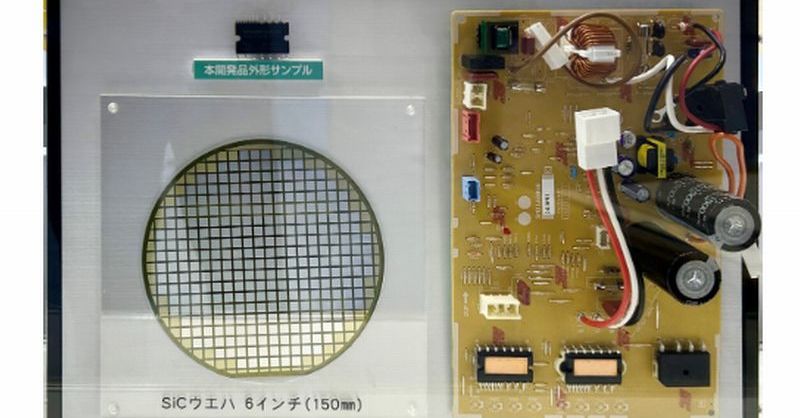Reduced AC Power Use: Innovative SiC-Based IPM Revolutionizes Efficiency
The quest for energy efficiency is a global priority, and the air conditioning industry is no exception. Traditional air conditioning systems consume significant amounts of power, contributing substantially to energy waste and carbon emissions. However, a revolutionary advancement is changing the game: Silicon Carbide (SiC)-based Intelligent Power Modules (IPMs). This innovative technology promises dramatically reduced AC power use, offering a greener and more cost-effective solution for cooling needs worldwide.
What are SiC-Based IPMs?
Silicon Carbide is a wide-bandgap semiconductor material that offers superior performance compared to traditional silicon-based components. SiC-based IPMs integrate multiple power components, such as MOSFETs and diodes, onto a single substrate. This integrated approach reduces losses, improves thermal management, and ultimately boosts efficiency. In the context of air conditioning, this translates to:
- Lower energy consumption: SiC IPMs significantly reduce power losses, leading to considerable energy savings.
- Reduced operating costs: Lower energy consumption directly translates to lower electricity bills for consumers and businesses.
- Smaller footprint: The higher efficiency allows for the use of smaller, lighter components, leading to more compact AC units.
- Enhanced reliability: The robust nature of SiC offers improved durability and a longer lifespan for AC systems.
- Improved power factor: SiC IPMs contribute to a higher power factor, reducing the strain on the power grid.
How SiC IPMs Impact AC Efficiency
Traditional AC systems rely on silicon-based inverters, which suffer from significant switching losses. SiC, with its wider bandgap, allows for much faster switching speeds, minimizing these losses. This results in a higher overall efficiency for the entire AC system. Furthermore, the improved thermal management of SiC-based IPMs reduces the need for bulky heat sinks, contributing to the smaller size and weight benefits mentioned earlier.
The Environmental Impact of SiC-Based IPM Technology
The environmental benefits of SiC-based IPMs in air conditioning are undeniable. By reducing energy consumption, this technology contributes to:
- Lower carbon emissions: Less energy means fewer greenhouse gas emissions from power generation.
- Reduced reliance on fossil fuels: Increased efficiency promotes the use of renewable energy sources.
- A greener future: SiC-based IPMs are a significant step towards a more sustainable cooling industry.
The Future of Cooling: SiC IPM Adoption and Challenges
While the potential of SiC-based IPMs is immense, challenges remain. The higher initial cost of SiC compared to silicon is a barrier to widespread adoption. However, as manufacturing scales and demand increases, the cost is expected to decrease significantly. Other challenges include:
- Supply chain complexities: Ensuring a reliable supply of high-quality SiC materials and components is crucial.
- Design and integration: Adapting existing AC designs to utilize SiC IPMs requires careful engineering.
- Standardization: The development of industry standards for SiC-based IPMs will facilitate wider adoption.
Despite these challenges, the long-term benefits of SiC-based IPMs far outweigh the hurdles. We can expect to see a gradual but significant increase in the adoption of this technology in the coming years, leading to a more efficient and sustainable cooling industry.
Conclusion: A Cooler, Greener Future
SiC-based IPMs represent a significant leap forward in air conditioning technology. By dramatically improving efficiency and reducing energy consumption, they offer a pathway to a cooler and greener future. While challenges remain, the potential benefits are too substantial to ignore. The future of cooling is undoubtedly becoming more efficient, and SiC is leading the charge.
Related Articles:
- [Link to an article about sustainable energy solutions]
- [Link to an article about the semiconductor industry]
Keywords: SiC IPM, Silicon Carbide, Intelligent Power Module, Air Conditioning, Energy Efficiency, Sustainable Energy, Green Technology, HVAC, Power Electronics, Semiconductor Technology, Renewable Energy, Climate Change, Carbon Emissions, Cost Savings.
